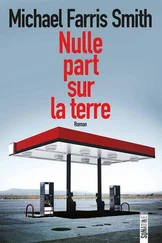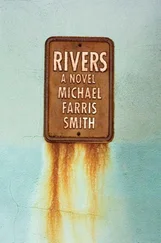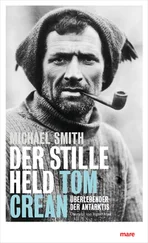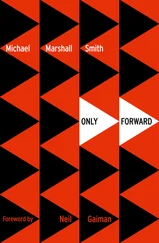‘I like him.’
He shook his head. ‘That was not the question I asked. I want to know whether you feel anticipation when you are about to see him. That really is the test, you know. Excitement. Anticipation.’
It was difficult for her to answer, and she was not sure whether she wanted to do so anyway. He had guided their conversation into a realm of intimacy that she had explored with nobody else, not even her close girlfriends. It was strange to be talking this way to a man, even as comfortable a man as James. And yet that very strangeness had a strong appeal. One should be able to talk about these things; one should be able to share them.
‘It’s hard for me to know,’ she said. ‘It’s not that I don’t feel something for Tom - I do. It’s just that . . .’
‘You don’t feel it, do you?’ He spoke gently, as if guiding her to a source of pain, a tender spot.
‘No.’
She realised that he had brought her to an understanding of her feelings she would not have achieved by herself, and she felt grateful as a result. That single word - that single cathartic ‘No’ - had revealed a truth that had been there all along but which she had simply never confronted.
He made a gesture with his hands - a gesture she interpreted as saying, well, there you are. And he was right. There she was: it was the end of Tom.
And the beginning of James? The thought refused to go away.
‘It’s not all that easy, you know,’ she said. ‘Ending something. It’s messy, isn’t it?’
She waited for an answer, but James was staring silently at the ceiling.
‘You do understand that?’ she pressed. ‘You must know how hard it is to end a relationship. There are all sorts of connections and ties and associations. Bits of lives meshed together. You have to cut through all of that, as a surgeon cuts through living tissue.’
He nodded. ‘I suppose so.’
‘You suppose so?’
‘Yes.’
‘You must have done it yourself.’
He continued to stare at the ceiling as he answered. ‘Not really. No, I haven’t. At least, not quite like this.’
‘Well, it would have been a bit different in your case.’
He looked at her coolly. ‘Why do you say that?’
She blushed. ‘Sorry, I wasn’t thinking. Of course it’s the same for everyone.’
The coolness he had shown vanished. When she looked at him, she suddenly saw only regret.
‘I’ve never been there,’ he said quietly. ‘I’ve never had what you’d call a love affair.’
‘But . . .’
‘No, I mean it. People think that everybody has been involved with somebody else, whatever their nature. They find it inconceivable that one might go through life never finding anybody. But you know something, Caroline? I think that’s far more common than you would ever imagine. There are plenty of people in that position.’
Impulsively, she reached out and took his hand. It seemed the most natural, the easiest thing to do, and it seemed easy for him too.
‘Poor James,’ she whispered.
He smiled at her weakly. ‘Yes, poor James.’
For a few minutes they sat there, not speaking, and not really looking at one another either. Their hands remained together, though, and when she squeezed his gently, in sympathy, he returned the pressure. It was as if signals were being exchanged in the night, in a time of war, perhaps - flashes of light in the darkness, one in answer to the other, messages that confirmed the presence of human sentiment, as feeling responded to feeling.
After a while, she gently relinquished her grip. She leaned over towards him and whispered, although there was nobody else in the flat, nobody who would hear, ‘Why don’t we go to Paris together?’
His eyes widened. ‘ Paris? ’ The italicised emphasis was perfect, she thought; just right.
She had no idea why she had said this. ‘Sorry,’ she whispered. ‘Very cheesy.’
‘ Cheesy! It’s not cheesy.’ He paused. ‘It’s exactly the right thing to do, Caroline. Paris! Of course.’
‘We could go on the Eurostar,’ she said.
It was a lame thing to say, enough to shatter the magic of the moment, but James was not deterred: there was nothing wrong with the Eurostar.
‘There are some Bonnards I want to see there,’ he said. ‘We could look at them together.’
She nodded her agreement; the Bonnards would be nice. But as she stood up and went to look out of the window, she thought: that’s the problem - that’s exactly the problem! Paris was more than Bonnard, at least for most young couples planning un week-end . Far more.
When James left Corduroy Mansions that afternoon he did not notice the taxi drawing up a few yards away. There was no particular reason to notice it; London taxis are ubiquitous, barely noticeable other than when sought out, and often becoming completely invisible then. And his mind was on other things, preoccupied with thoughts of Paris and Bonnard, and - although not to the same degree - of the time he had spent with Caroline. There was also, of course, the memory of the lemon gems; those delicacies had left a lingering taste in his mouth, a vaguely lemony sensation that reminded him of a childhood holiday in Cyprus, where the hotel had a lemon grove in its grounds, and . . . No, he would not revisit the lemon grove.
So James did not see a middle-aged man struggling to get out of the cab while holding what seemed to be a dog’s bed under one arm and the end of a leash in the other hand. The man, William French MW (Failed), succeeded in getting himself out of the taxi and then, laying the dog’s bed down on the pavement, began to tug on the leash. The dog at the other end seemed reluctant to move, but eventually, after a few increasingly firm tugs, jumped out of the cab and sat obediently at the man’s feet. The fare was paid and the cab moved off into the traffic.
From his position on the pavement, seated at the feet of a human being whom he had only just met but instinctively liked, Freddie de la Hay, Pimlico Terrier, sniffed at the air. He had a very good nose - a trained nose, in fact, because before he had been acquired by the opinionated columnist, Manfred James, he had been employed as a sniffer dog at Heathrow airport. He had been good at his job, but had been dismissed as part of an affirmative action programme when it had been discovered that all the dogs at the airport were male. After this matter had been raised by a local politician, it was announced that there would be a policy of equal opportunity for female sniffer dogs - an absurd notion that had provoked outraged rants in those newspapers given to such things. But for some, at least, the point raised by this exercise was a valid one. Should one treat animals fairly?
The question was a serious one. The Heathrow issue had caught the attention of at least one moral philosopher concerned with the rights of animals - a weighty matter that was increasingly, and deservedly, the subject of philosophical discussion. Most of this writing was of one view: causing pain or distress to an animal was wrong - as even the Struwwelpeter , that none-too-gentle children’s classic, recognised in its story of Cruel Frederick. Frederick, the taunter of the good dog Tray, was bitten for his gratuitous cruelty, to the delight of all; a fate that could have been so much worse, bearing in mind what happened to Augustus in the same book, and to the digit-deprived victims of that thinly disguised castration-figure, the tailor with his large scissors, the bane of those who sucked their thumb.
But if the inflicting of physical pain was generally, if not universally, disapproved of, then what of wrongs of a lower order, such as unfairness in treatment? The moral philosopher who seized on Freddie de la Hay’s case as an illustration for his paper, ‘Justice and Injustice Between Species’, suggested an example of two dogs and one biscuit. It was typical of the dilemmas beloved of moral philosophers, being set in a world which is recognisably our own, but not quite. Mother Hubbard, the owner of two dogs, has only one dog biscuit in her cupboard. Her two dogs, whom she does not love equally, are at her feet, eagerly anticipating the treat. What should she do? Should she break the biscuit into two equal parts and give each dog a morsel, or may she give the biscuit to the dog she prefers?
Читать дальше










